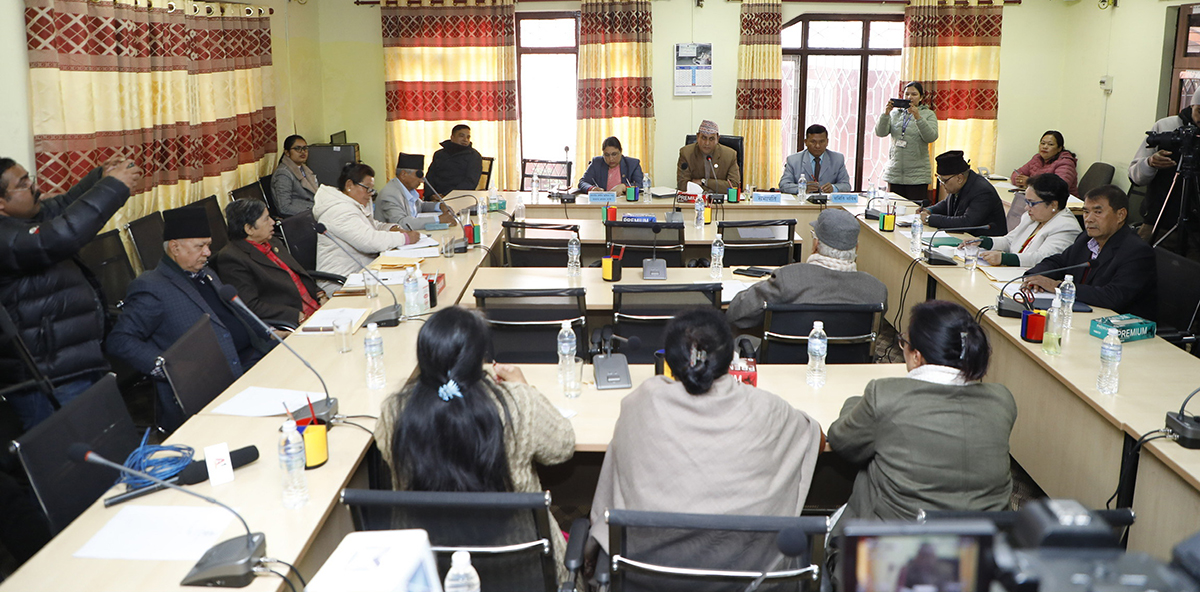The Federal Civil Service Bill has been passed by the State Affairs and Good Governance Committee of the House of Representatives.
Committee Chair Ramhari Khatiwada said that the committee meeting held on Friday unanimously passed the Federal Civil Service Bill.
The bill had pending issues such as the cooling-off period and how to implement the retirement age for employees. Those matters were resolved on Friday, leading to the bill's passage.
The committee has agreed to set a cooling-off period of two years for civil servants in the bill. This means those who retire from the federal civil service must wait for two years before they are eligible for constitutional appointments.
A majority of lawmakers, including those from the Nepali Congress and the CPN (Maoist Center), were in favor of a two-year cooling-off period. However, CPN-UML lawmakers had insisted on a one-year cooling-off period.
But after the UML lawmakers agreed on a two-year cooling-off period at Friday’s meeting, the bill was passed unanimously.
UML lawmaker Raghuji Panta, who is also the education minister, had long advocated for a one-year cooling-off period. However, he also agreed on a two-year cooling-off period on Friday.
Earlier, Home Minister Ramesh Lekhak had sought time to resolve the issue following disagreements between lawmakers from ruling Nepali Congress and UML over the duration of the cooling-off period. He had said that a consensus would be reached within five or six days.
Speaking at Friday’s committee meeting, Home Minister Lekhak proposed a two-year cooling-off period for civil servants. All the lawmakers on the committee agreed to the proposal, and the bill was passed unanimously.
The committee has also agreed to extend the retirement age for employees to 60 years. The retirement age for employees was previously set at 58 years.
Although the committee had already reached a consensus on raising the retirement age to 60, there were still disagreements on how to implement it. The committee has now agreed to implement it in a phases.
Employees will retire at 58 years in the year the bill is passed, then at 59 after a year, and finally at 60 in the year after that—as agreed upon by the lawmakers on the committee.

